To read an automated transcript of today’s conversation, you can follow this link. I’ll include some highlights of our conversation below along with some time stamps to help you listen along if you desire!
This week we are talking with writer Liz Charlotte Grant, about shifting faith therapy, the process of memoir writing, and the tender topic of navigating family boundaries, including when that extends to ending contact with family members.
Our guest, Liz, is an award-winning non-fiction writer. Last year, her newsletter, the Empathy List, was nominated for a Webby Award, making it one of the top five newsletters on the internet. She's been in the Huffington Post, the Christian century, Christianity Today, US Catholic, and many more places. Her first book will arrive from Eerdman's Press in 2024.
I originally met Liz at a Writing Fair Life conference in Colorado in 2022. She’s one of those friendly, gregarious people who brings people together (something introverts like myself very much need at a writing conference full of strangers!). She asked a question there about her memoir she wanted to have published. The problem was she didn't think that she would be able to have the people within the memoir consent to being in it, and she ended up pulling the contract.
For *reasons,* I was super intrigued by this little revelation about her because I have experienced some the similar things in the process of writing memoir and people who may or may not like what you have to say. We chatted it up at the conference, and I am so pleased to bring you an interview today where we talk about memoir writing, complex trauma, therapy, and challenging family relationships. Hope you enjoy!
2:00: Liz’s classic All-Star evangelical child resume
4:00: What started her journey towards deconstruction / unmasking religious trauma: it wasn’t church structures… it was the incongruence she felt in her family that said they believed in Jesus and God who was one way, but she didn’t experience that from them.
6:00: How dysfunctional family relationships set her up for codependency and unhealthy friendships / relationships down the line. Liz went through a lot of therapy to recover from these things!
12:00: The process of writing her memoir, which included a chronic illness involving her retina and overall vision. How she realized that she needed a story in her memoir beyond reporting what had happened, and what that actual story and throughline turned out to be (hint: it has to do with those troubled family relationships)
20:00: On needing to set boundaries with her parents:
And you know, with complex childhood experiences, often part of the trauma there is the fact that everything was about the parent, you know?…Setting that boundary with my parents. It was like they were over my shoulder reading everything I was writing. So I'd be like typing and my mom would be saying things on the right and my dad would be saying things on the left, and it was so confusing, right? I couldn't even hear my own self. But then after I had set this boundary with them, all of a sudden I was able to separate.
21:00: The process of trying to protect herself and family in the process of publishing memoir, and why she ultimately didn’t go through with the book contract.
26:00: Why Liz ultimately decided to cut off contact with her parents (for right now):
Like, wait, if I can do better as a parent, I want to do better as a parent. Why didn't my parents do better for me?… I started to have conversations with my parents about some of the pain that I'd experienced…
[Mom] and I had a lot of very hard conversations and the last conversation we had was in my kitchen and she was yelling at me and telling me that I was a bad Christian, and I had no right to be doing any writing or speaking about anything faith related because I wasn't in contact with my father.
37:00: On the internal wrestling about going no contact
My therapist did ask me, what do you want from them? Like, what would reaching out to them give you. And I was like, well, really nothing. Like it would just make me not feel guilty. And she was like, huh.
I think it felt like I couldn't be a Christian, a good Christian, and be out of touch with my parents. But as you know, I made the decision because it felt like I couldn't make any other decision. I was like, that was the only choice left. My parents weren't willing to work through things with me.
I wasn't able to work through things with them in the way I wanted. And we needed the pause. I hope it's not a forever boundary, but for now it is. Interacting with them is a part-time job for me and I don't have time for it. I need the space, the relational space, space for my children and for other relationships. Like I don't want all of my energy to go toward these family relationships and working through past issues. I want to have emotional space for other things.
40:00: Words of wisdom or advice Liz has to offer us?
I think these decisions are so tender. You know, when we grow up with complex childhood trauma, our instinct is that our needs don't matter. And so that is the fundamental thing we are taught, that you are less important. Your experience of your family and yourself is less important than theirs of you. I think it was very freeing to say, that's not true. My singular life is only mine. And so I have to own the things in myself. And you know, for me it wasn't about happiness. It was actually about purpose.
I felt that I couldn't do the other things well that I needed to do, that were right in front of me. And so it was a sense of embrace of my own limitations too. I can't actually mother my parents while I'm mothering my children. I can't actually have weekly phone calls with them and try to keep up with writers across the country that I'm trying to be friends with.
You know, I can't write this work I need to be writing if they're on my shoulder, right? And so a lot of that was very clear to me. Like there is a limitation actually on me and my energy and time, and it's okay to acknowledge that. So I think some of those things were just, you know, that I just started to notice myself and see that I was a person worth caring for and that it was okay to say there were things I couldn't do.
You can find
on her Substack newsletter, The Empathy List, which promotes a more empathetic and curious Christianity from a progressive Christian lens (her article from yesterday is sooo good!). Find her on Instagram here. And her book coming out in 2024 is about re-approaching scriptures after leaving inerrancy, writing in a genre mixing in sciences, fine art, Jewish myths, and much more!If you liked this interview, would you press the “heart” button and/or leave a comment? I’d love to hear how this impacted you. And if you have questions or further topics to explore around the issues of family boundaries and family of origin relationships, pleeeease comment (or write me at christinegreenwald.substack.com): I would love to tailor some posts to tackle some of the issues you all want to hear about!


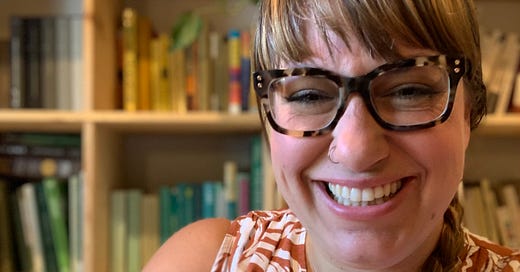




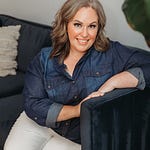
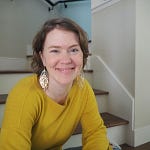

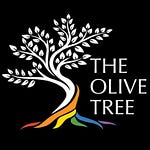
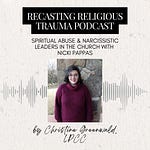
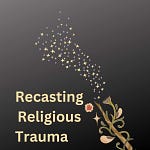
Share this post